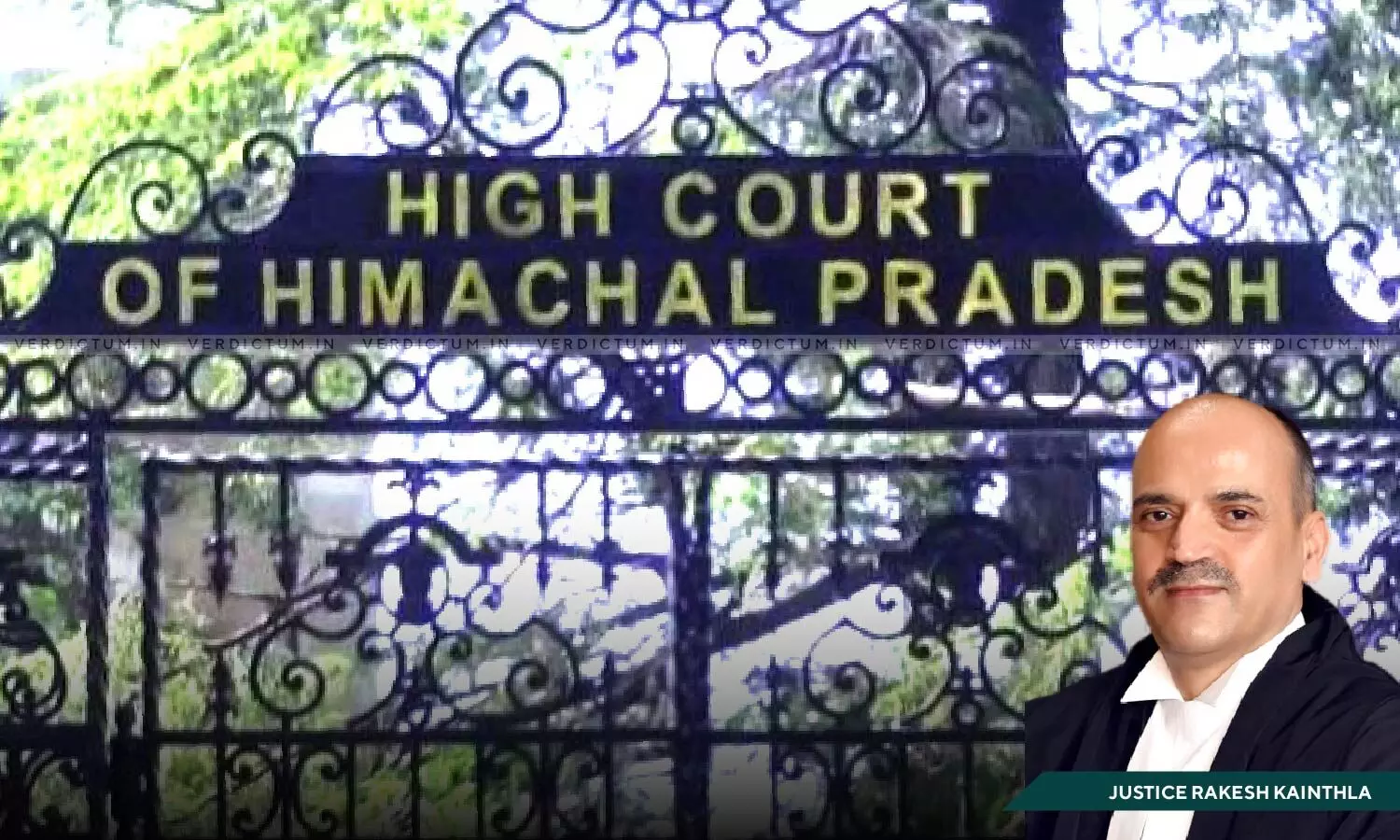
Justice Rakesh Kainthla, Himachal Pradesh High Court
No Evidence To Show That Complainant Was Owner Of Proprietorship: Himachal Pradesh High Court Upholds Dismissal Of Cheque Bounce Complaint U/S. 138 NI Act
 |
|The Appeal before the Himachal Pradesh High Court was filed against the judgment of the Trial Court, whereby the complaint filed under Section 138 of the Negotiable Instruments Act was dismissed.
The Himachal Pradesh High Court has upheld the dismissal of a complaint filed under section 138 of the Negotiable Instruments Act. The High Court noted that the Trial Court had rightly held that the complainant did not fall within the definition of payee and was not entitled to file the complaint as no satisfactory evidence was produced to show that the complainant was the owner of a proprietorship.
The Appeal before the High Court was filed against the judgment of the Trial Court, whereby the complaint filed by the appellant-complainant for the commission of an offence under Section 138 of the Negotiable Instruments Act (N.I. Act) was dismissed.
The Single Bench of Justice Rakesh Kainthla observed, “Since in the present case no satisfactory evidence was produced to show that Shivani Gupta is the owner of Shirgul Filling Station, therefore, the learned Trial Court had rightly held that the complainant does not fall within the definition of payee and he was not entitled to file the complaint under Section 138 of N.I. Act. This was a reasonable view taken by the learned Trial Court, duly supported by the judgments of the Hon’ble Supreme Court and this Court; hence, no interference is required with the same.”
Factual Background
The complainant filed a complaint before the Trial Court for the commission of an offence punishable under Section 138 of the NI Act. It was asserted that the complainant and the accused were known to each other. The complainant is a Manager of Shirgul Filling Station and the accused is a registered Government Contractor with HPPWD owning various vehicles. The complainant supplied the fuel to the vehicles of the accused with an assurance from the accused to make the payment subsequently. The accused was liable to pay Rs 5,00,000 and he issued a cheque for the same.
When the complainant presented the cheque at his Bank, it was dishonored with an endorsement ‘insufficient funds’. The complainant sent a legal notice to the accused asking him to pay the amount within 15 days. The accused refused to receive the notice, and it was returned with the endorsement ‘refused’. The notice was deemed to be served upon the accused, and hence, the complaint was filed before the Trial Court. The Trial Court dismissed the same on the ground that the complaint was not filed by the payee.
Reasoning
Considering the fact that the appeal had been filed against a judgment of acquittal, the Bench referred to the judgment of the Supreme Court in Surendra Singh v. State of Uttarakhand (2025) wherein it has been held that the Court can interfere with a judgment of acquittal if it is patently perverse, is based on misreading of the evidence, omission to consider the material evidence and no reasonable person could have recorded the acquittal based on the evidence led before the Trial Court.
The Bench noted that Ankur Aggarwal (complainant witness) stated in his cross-examination that Shirgul Filling Station was owned by Shivani Gupta, who had not filed any complaint in the Court. He had not brought any documents to show that he was posted as a Manager or was authorised to file the complaint. He volunteered to say that he had a special power of attorney.
Reference was made to the judgment of the Supreme Court in Milind Shripad Chandurkar v. Kalim M. Khan, (2011), wherein it was held that when no evidence was led to prove that the complainant was the owner of a proprietorship concern, he could not be called to be a payee or holder in due course. It was also held therein that the complaint can be filed by a payee or holder in due course, and when there was no evidence that the complainant was the proprietor, he was not entitled to file the complaint.
As per the Bench, the Trial Court had rightly held that the complainant was not entitled to file the complaint under Section 138 of N.I. Act. Thus, the Bench dismissed the appeal.
Cause Title: Shirgul Filling Station v. Kamal Sharma (Neutral Citation: 2025:HHC:21725-DB)
Appearance
Appellant: Senior Advocate Bimal Gupta, Advocate Aman Thakur
Respondent: Advocates Rupinder Singh Thakur, Bhavya Sharma